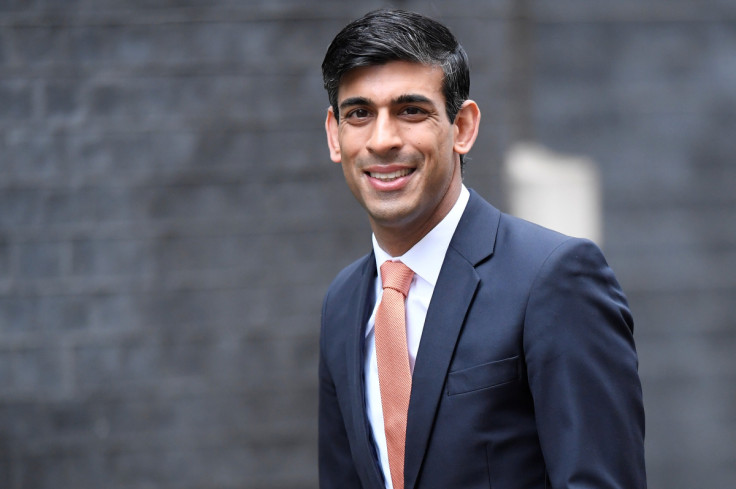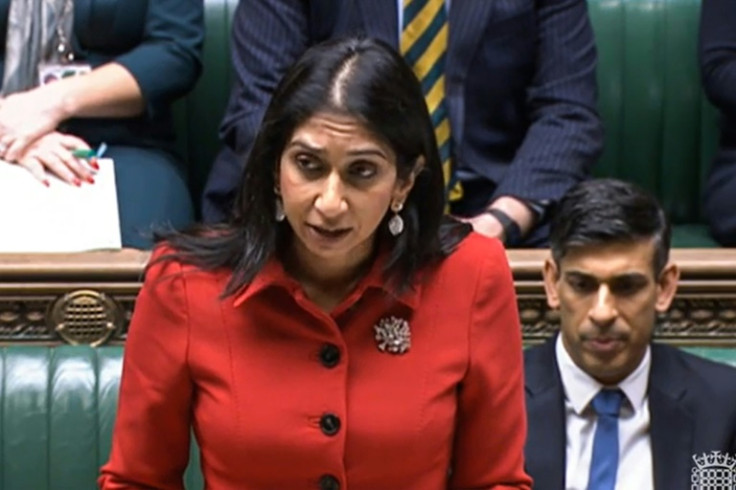Sunak failing to deliver on priorities, say Britons in new poll
Almost 6 months since Rishi Sunak set out the five priorities his government would tackle, an Ipsos poll shows Britons believe he is failing.

Almost 6 months since Rishi Sunak set out the five priorities his government would address, an Ipsos poll shows Britons believe he is failing.
In December 2022, the prime minister said he would focus on halving inflation, growing the economy, reducing debt, cutting NHS waiting lists, and stopping small-boat crossings to the UK.
Since then, his government has presided over a surging cost-of-living crisis, record levels of inflation, as well as an unprecedented amount of illegal migration into the UK.
As a result, Sunak is facing growing scrutiny on the progress he is making to achieve the goals he laid out when he became Prime Minister.
Doubt over his party's ability to solve the problems facing the country was reflected in the recent local election results.
Last month's Local Council Elections across the UK were billed as a crucial indicator of how the Conservatives and Labour will fare in the next General Election.
And the Tories lost 48 councils and over 1,000 councillors to Labour, Lib Dems, and the Greens. This included relinquishing key strongholds in Stoke-on-Trent and East Staffordshire to Labour.
In contrast, Labour won more than 500 councillors in the local elections, while the Liberal Democrats won more than 400.
The Labour leader said his party was making gains in "all the places that we need to win the battlegrounds." He added: "We are on course for a Labour majority at the next general election."
And now, newly-released polling data appears to support a consensus that Labour may be on track to pipe the Tories to an election victory in 2024.
The poll was a UK survey of 2200 British adults, carried out between 26 and 30 May 2023. It was focused on the government's priorities and the public's thoughts on the outcome of the next general election.
According to the data, more than 50 per cent of people think the government is doing a bad job on almost all of its 'priorities'.
It also found the public tended to think Mr Sunak was doing a worse job in the areas that were most important to them.
The nation's top priority was easing the cost of living – 59 per cent listing it as important – followed by ensuring people can get NHS treatment more quickly (54%) and reducing NHS waiting lists (51%).
Last month, UK interest rates were raised for the 12th time in a row to their highest level for almost 15 years.
The latest spike was described as "necessary" due to rising inflation levels across the UK. Inflation began to hamper business growth in the aftermath of the Covid-19 Pandemic.
Russia's invasion of Ukraine the following February then exacerbated the inflation problem, with soaring energy costs piling additional misery on Western nations.
Average energy bills in the UK increased by 54 per cent in April 2022 and rose a further 27 per cent in October last year.
Now, according to data collected by the British Retail Consortium (BRC), average shop prices are now 8.9 per cent higher than they were at this time a year ago. It is the highest rate ever recorded and represents a significant acceleration from the 8.4 per cent measured in February.
These considerable extra costs, faced by households and businesses alike, are still filtering through in the form of stubborn inflation for many goods and services.
In March, Sunak's government unveiled a 'cost of living budget', which aimed to halt inflation with policies such as extending a subsidy on energy bills for a further three months.
Despite this, just 18 per cent said the government was doing a good job of easing the crisis.

The government has also come under pressure in recent weeks after the UK Office for National Statistics (ONS) revealed that net migration rose to a new record calendar year figure of 606,000 in the 12 months to December 2022.
Furthermore, asylum decisions have fallen by 18 per cent since December, according to an analysis conducted by the Home Office.
With this in mind, almost half of Tory voters listed ensuring the swift removal of illegal immigrants as an important priority, according to Ipsos.
In 2019, the Tory manifesto pledged to "bring overall numbers down." However, in 2021, the net figure remained high at 488,000.
And in December 2022, Sunak declared he would clear the backlog of "legacy" asylum cases, promising that this would be achieved by the end of this year.
When Sunak made this high-profile promise, the number of backlog cases stood at 132,182, according to The Migration Observatory.
Whilst Sunak admitted that migration numbers were too high, he denied that immigration is out of control.
Downing Street said measures it had introduced to tackle the number of unresolved cases would "take time to bed in."
Significantly, the poll also indicated that the public was more likely to think a Labour government would do a better job than the Tories on each of Mr Sunak's priorities.
Between a quarter and a third of people thought Sir Keir Starmer's party would do a good job of halving inflation, cutting NHS waiting lists, and reducing the national debt. Some 21 per cent said Labour would do a good job of stopping small boat crossings.
Starmer took over as Labour leader in 2020, when he won his party's leadership election following their resounding 2019 general election defeat.
Since then, he has moved Labour toward the political centre, renouncing several of his left-wing campaign pledges, as well as emphasising the importance of eliminating antisemitism in the Party.
The latest polling data will be encouraging for the Labour leader, who will be hoping to build up a significant polling advantage over the Tories before the next General Election.
© Copyright IBTimes 2025. All rights reserved.




















